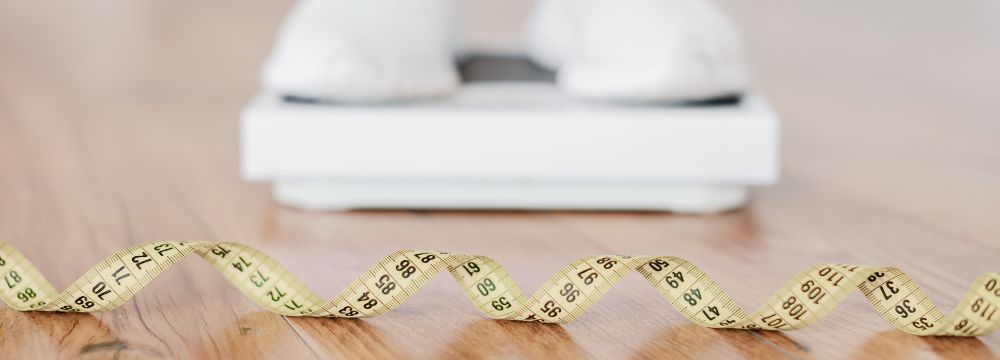
Choosing a sleeve, gastric bypass, duodenal switch, or other weight loss surgery is a big commitment. In addition to the recovery period, these procedures require patients to make significant diet and exercise changes and commit to them for the rest of their lives. Given all the effort, most bariatric surgery patients are eager to be rewarded for their work with rapid and significant weight loss and improved health. One measure of weight loss surgery success is the body mass index (BMI). So, what kind of BMI can you expect to achieve after bariatric surgery? Unfortunately, there’s no single answer – but these facts may help you prepare for what’s ahead in your bariatric surgery journey.
First Things First: What Is BMI, Anyway?
In short, BMI is a measure that considers your weight and height to estimate your average body weight. It is often used to determine whether you are underweight, overweight, obese, or within an ideal weight range. A BMI of 18.5 or less is considered underweight, 18.5 to 24.9 is healthy, 25 to 29.9 is overweight, and 30 and up is obese.
BMIs are often used to determine eligibility for bariatric surgery. Guidelines updated in 2022 by the American Society for Metabolic and Bariatric Surgery state that people with a BMI of 35 or greater are likely to benefit from weight loss surgery. The guidelines also specify that people with a BMI of 30 or greater should consider a bariatric procedure if they have not achieved significant or lasting weight loss with nonsurgical methods. The BMI cutoff for recommending surgery is even lower at 27.5 for those of Asian descent.
What Kind of BMI Can I Expect After Weight Loss Surgery?
Ideally, everyone who undergoes bariatric surgery would eventually reach a BMI of 24.9 or less – enough to bring them within a healthy weight range. However, that doesn’t always happen. Your BMI after bariatric surgery can be influenced by several factors, including:
- Age. Younger patients in their 20s and 30s tend to lose more weight than those in their 40s, 50s, and up.
- Your starting BMI. For example, if you have a BMI of 50 before your surgery, you’ll probably have a somewhat higher ending BMI than someone starting with a BMI of 40.
- Gender. Some studies have shown that women tend to lose more weight from bariatric surgery than men.
- Presence of diabetes. If you have Type 2 diabetes before your surgery, your final post-surgery BMI is likely to be higher.
- Psychological considerations. Patients with depression and binge-eating disorders tend to lose less weight through bariatric surgery than those without these conditions.
- Type of procedure. Gastric sleeve surgery patients usually end up with slightly higher BMIs than those who undergo gastric bypass or duodenal switch.
- Musculature. Those who commit to vigorous strength training often have a higher BMI – not a bad thing! See below…
Limitations of BMI
Though BMI is a quick and easy indicator of a healthy weight, it has limitations. It can underestimate body fat percentage in older people and those who have lost muscle (common among bariatric surgery patients). It can also overestimate body fat in athletes and those with more muscular bodies. Moreover, BMI isn’t calculated differently for men and women, though women tend to have higher body fat percentages than men. This means that a woman with a certain BMI will likely have more body fat than a man with the same number.
So, while a BMI in a healthy weight range can be one indicator of a successful weight loss surgery, it certainly isn’t the only measure. Other ways to determine improved health include:
Waist Circumference
Fat around the midsection can increase your risk of heart disease and other conditions. For this reason, the National Heart, Lung, and Blood Institute (NHLBI) suggests a target waist size of 35 inches or less for women and 40 inches or less for men. If you can achieve this after your bariatric surgery, it’s a good sign that you’ve improved your health.
Blood Pressure
Most bariatric surgery patients see a significant reduction in their blood pressure after their procedure, thereby reducing their risk of heart attack and stroke. If your blood pressure was higher than the standard of 120/80 mmHg before surgery and it’s come down consistently, you’ve likely reaped benefits from the procedure.
Cholesterol Levels
High levels of low-density lipoprotein (LDL) cholesterol, also known as “bad” cholesterol, can raise your risk of heart disease. Studies have shown that bariatric surgery can reduce LDL cholesterol levels. If you can bring your LDL cholesterol below 100 mg/dL after your procedure, you’ve done your body good.
Are you considering bariatric surgery for weight loss? Dr. Husain Abbas and the team at MASJAX can help determine whether it’s an appropriate treatment for you. Contact us to set up a consultation.









